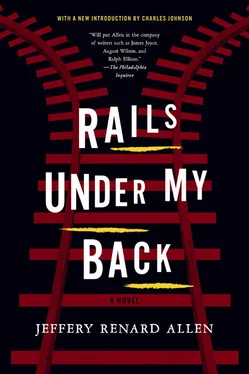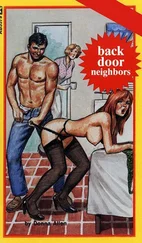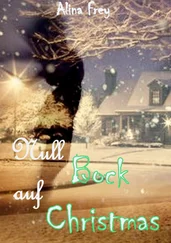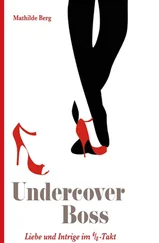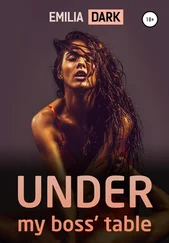Train.
Train? All the way from California?
Beulah said nothing.
Hatch seethed, sunk, settled, let his mind clear. And you worked for him in Memphis?
Yes. He was good to work for.
Cleaning up after them is good?
Better than a lot of jobs.
When you’d come to Memphis?
During the war. Bought a ticket long as my right arm and hopped that locomotive. That locomotive pack. No room for nobody. No seats.
The smell of everybody’s life mixed together.
So we ride wit the soldiers, sittin on our luggage in the aisles.
And you came to Memphis?
Colored folks bouncing babies to sleep on they knee. Some even draggin long the family hog. Huff and puff up the rise. Two points make a line and we gone ride em all. Where the Southern crosses the Dog.
Her voice thin as the sheet that covers her. And is talkin. Andrew, her husband, the railroad man. Railroad talk. The beat in between the beat of her voice. His cigar puffing up the rise. Lil nigga, that the rail and that the tie and that the sleeper and that the rail chair. Come heah, lil nigga, so I can show you this.
Oh, my soul got happy when I come out of the wilderness.
You went to Memphis? He said it louder this time.
Yes. Sam and Dave got jobs in the meat factory. I found me some day work.
Yeah. Cleanin these white folks’ houses. But why did you come? She was the right person to ask. Her memory clean and clear. I want to tell you and keep you told.
Same reason we all came. The big river flowed from there to here, and they built the railroad right next to it.
The rails are two rivers. Two watery trails.
First came to the city— Lord, I’m traveling. Lord, I got on my traveling shoes —in the middle of winter. That cold liked to kill me. Cold city winds. Snatch off yo durn draws.
There was these two right evil hoodlums laid for me every Friday payday. Two cutthroats wit stockings on they face, lookin like onions. They knock me down in the snow and kick me til I rolled. Grab my pocketbook. And laughin. They yell, Stop thief! Somebody call the police! But this one Friday, I was ready for em. Put a straight razor in my bosom. I cut them every which way but loose. Shoulda seen the blood running away from they evil bodies. Glad to be free.
I WOKE UP THIS MORNING with my mind still on the Lord. You read your Bible?
Sometimes. He lied. He didn’t want to hear nothing bout no Bible.
Those words ain’t written in ink and paper. You go to church?
Sometimes.
Don’t you know? Church is life and fire insurance.
Beulah had walked hand in hand with death most of her life. Beulah will outlive us all, Sheila said.
Turn on the game. Yankees playin today. Beulah never missed the Yankees.
You ever see them play?
Course I seen them play.
I mean did you ever go there to see them play? New York? The Bronx?
No. I’m gon wait for you to buy me some tickets.
He found no humor in her statement. Lula Mae was gone, lost, forever silent, and Beulah was alive, pillows propped up behind her in Lula Mae’s bed — the creaking pain of old age — the windows shut, the shades drawn. Here before him now. She would soon return to St. Paul, resume her life there. He had little time. But why not? You rambled?
First Houston, then Memphis, then the city, then Decatur, then Fulton, then St. Paul. No grass grew under her feet.
Yes, I rambled. The hand of the Lord was upon me. I’ve never been to the seminary, but I’ve been to Calvary. I’ve had no education, but moved the Red Sea.
DROUGHT SUMMER, the topsoil gray and loose, light. Cracks wide, thirsty mouths, the desperation of breathing. Bent cane stalks like old men. No greening rains. Once, the plowed fields were like quilts in shades of green and brown. Now, a haze of thirsty yellow. He had to see the house, Beulah some other place now. Beulah’s house, down the hill past the weed-choked cemetery, the crooked stones, past the train depot, the train shrieking through the intersection of road and track, speed eased or stopped with a red flag. He found a pile of ash-blackened boards where her house once stood, the hollow brick frame trying to swallow up the sky.
Uncle John always drove them to Beulah’s during winter. Speeding out the city to cut gray slush paths through white winter space and silence. White flakes drop to the earth, fleeing the sun (just as black ashes rise to the sun’s warmth). Square upon square of cornfield, the state hospital surrounded by corn, the crazies made crazier by the constant green beyond the window bars. These plains an hour outside the city, plains fitted for sweeping and rolling winds, twisting arrows that stick everything in their path and carry them off to the farthest horizon. Now the town itself. Decatur. Kankakee County. Snow brilliant white like a second skin on trees, rooftops, awnings, window ledges. The cement path to her house, winter-covered, sunlight blinding on white snow-thickened grass. The mound behind the house, the mound that you could enter through two wooden doors, pull them up and back, raised insect wings, and walk down four or five crumbling stone steps, descend into the earth itself. Cept it wasn’t earth, but a concrete cave filled with dark cluttered junk.
You and Jesus square off against Jacky and Lil Judy. Scratch each other’s eyes in a tumbling-down clinch.
Don’t yall play so rough, Porsha says. They girls.
Ain’t nobody playin.
And the two-story house itself where Beulah had raised Rochelle, Jacky, and Lil Judy, Dave’s three girls— Dave, that nigga, God durn his soul; he spend his check before he make it home; and Jesse would jus grin, Mr. Dave, you so crazy; what she know; she weren’t but thirteen and green as a grasshopper; Dave feed them babies sugar water; Jesse ask the neighbors fo some bread and crackas, then that firewater take a holt to her and she have that stroke, and Sam and Dave, God durn they souls, Sam and Dave runnin the streets actin the biggest fool; Dave spend his check befo he make it home; them babies white as ghosts from all that sugar, sugar sticking to they diapers; and Lil Judy sucking on Sam’s wood stump leg like it some kinda pacifier; sure I took them, raised them; what else was I gon do? — who were quicker than Beulah’s old apron strings.
Don’t get too close to them, Porsha said.
They got worms again?
Yeah.
How they get em?
From eatin all that candy.
Worms live in candy?
No, in sugar.
Thanks and praises. Pregnant and grown, Rochelle, Jacky, and Lil Judy packed up babies and belongings, journey west, to St. Paul — to get the maximum government check from public aid — and left Beulah in an empty house. Beulah musta gotten lonely. That’s why she sold the house and moved with Koot in Fulton; but Koot died; she moved up the road with Big Judy; Big Judy died; where could she turn? Lula Mae? She and Lula Mae didn’t get along. Never had. So she moved to St. Paul, where Rochelle, Jacky, and Lil Judy passed her from house to house, passed her around like a hot reefer joint.
The sweet smell of her asthma cigarettes floated through the room and refused to leave. Brown and green medicine bottles, still on the surface of the nightstand next to her bed. Bedridden— When you old and sick and gotta stay in bed, ain’t much else you can do —in the silk Chinese robe that Andrew, her first husband — two husbands, was this a family tradition? — had brought her from Seattle, splotched with black-lined ginkgos, gold dragons, jade rivers, and scarlet flowers. The smooth tan skin, the neck a hill of wrinkles sliding down to her big-boned torso. The years had preserved her hair— good hair, Sheila called it — flowing in a silver wave down her back. Used to be longer than that. All the way down to her knees. She would brush it in long, slow, attentive strokes as if to bring the words out.
Читать дальше
